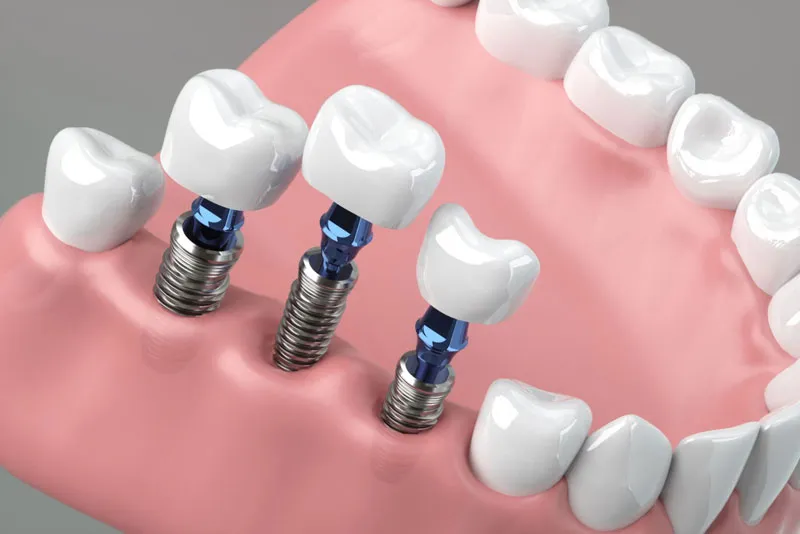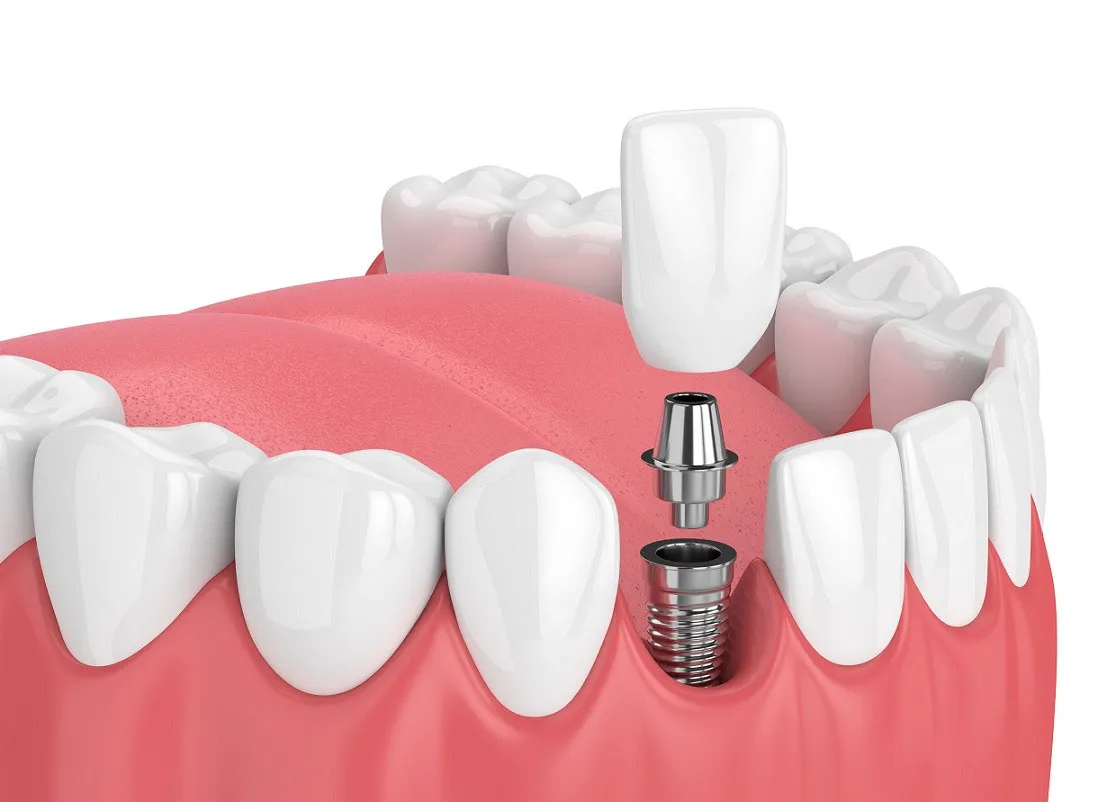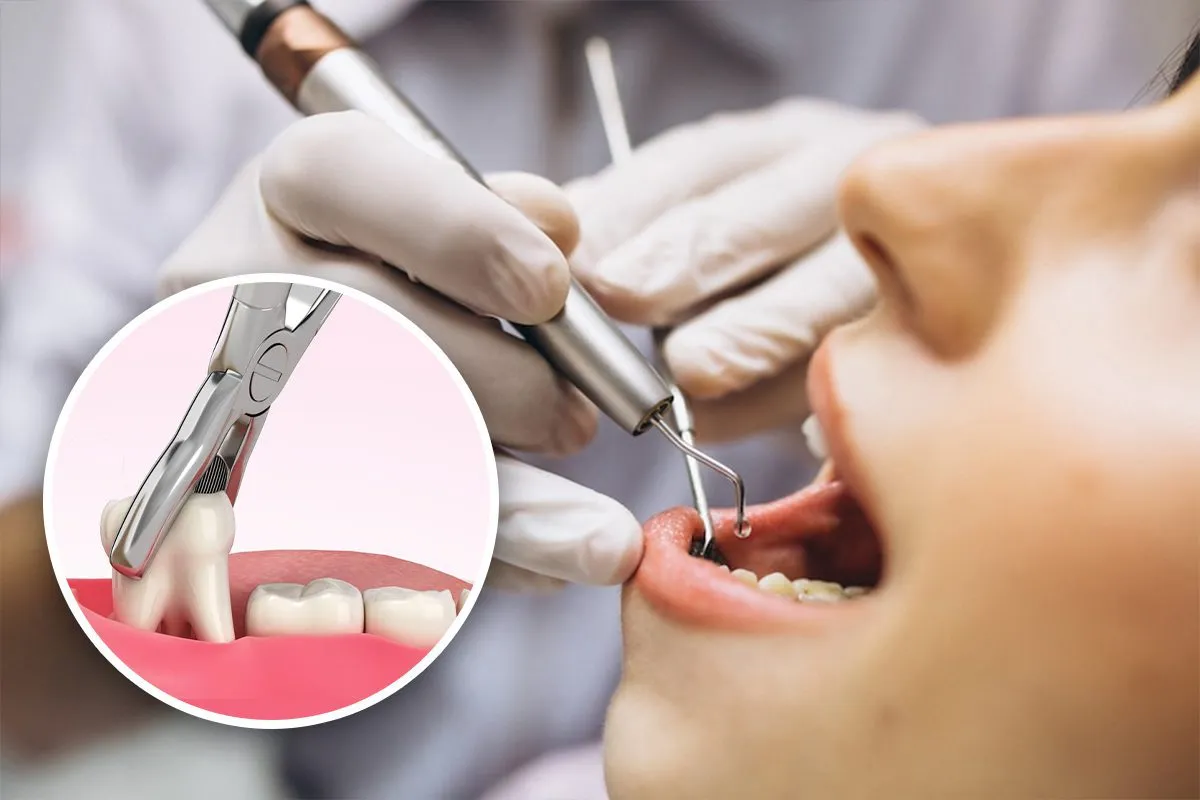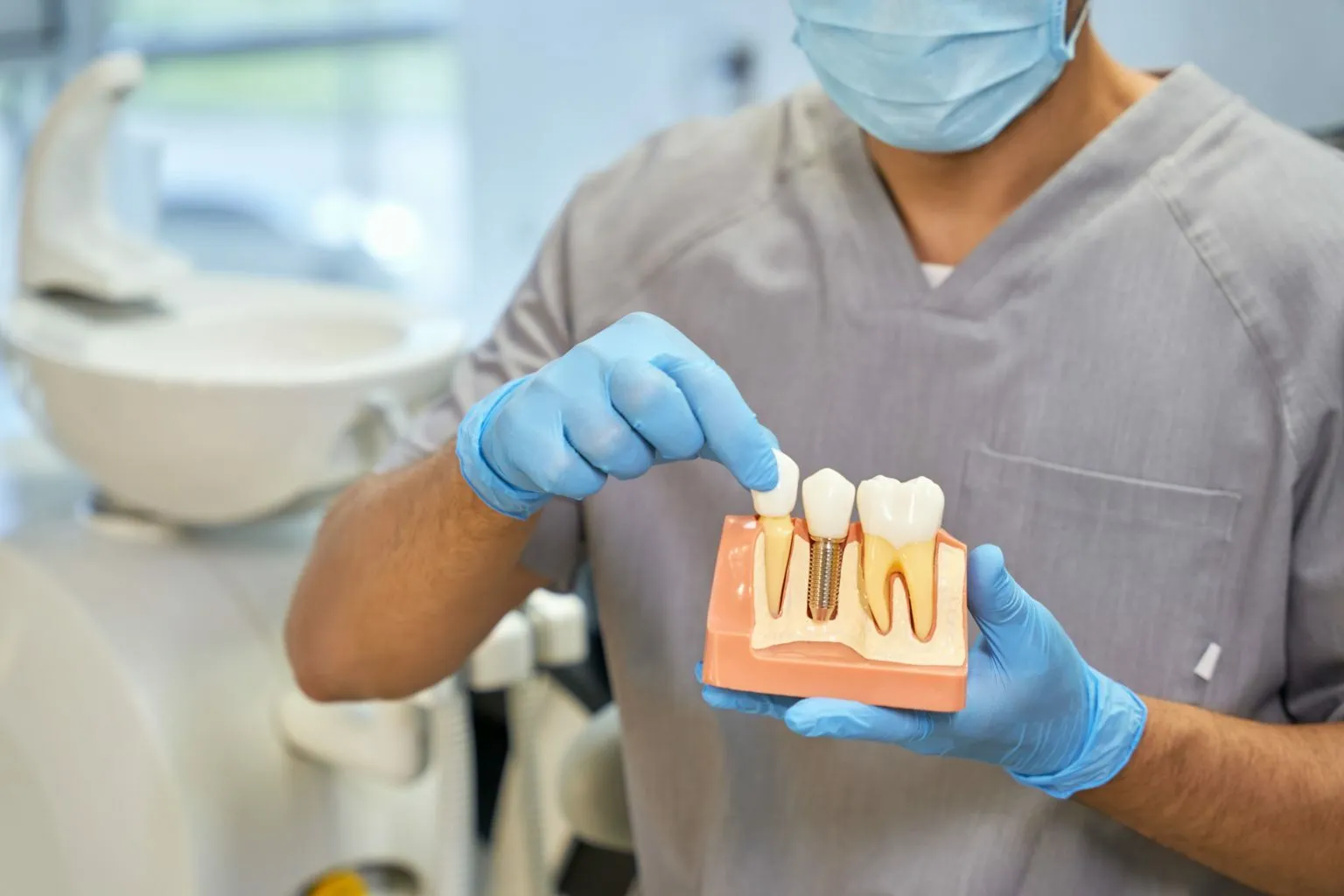
Is Implant Pain a Dental Emergency? Causes, Warning Signs & Treatment
Dental implants are made to look, feel, and function just like natural teeth. They restore confidence and chewing comfort but what if you start to feel pain around one? Mild discomfort after surgery is completely normal, but persistent or severe pain can be a sign of a deeper issue that requires urgent dental care.
Knowing how to distinguish between normal post-surgery healing pain and abnormal, ongoing pain can help protect your dental investment. Early detection and professional care are crucial to saving your implant and preventing further complications. This article will explain the types of dental implant pain, their causes, when they indicate an emergency, and what steps you should take to find relief and prevent future problems.
Understanding Normal vs. Abnormal Implant Pain
Expected Pain After Dental Implant Surgery
After implant placement, it’s normal to experience mild soreness, swelling, or tenderness around the surgical site. This type of pain usually peaks within the first few days and gradually decreases as the tissues heal. Pain relief medication prescribed by your dentist can manage this discomfort effectively.
When Pain Becomes a Warning Sign
If pain intensifies instead of improving, or reappears months or years later, it’s likely not part of normal healing. Lingering pain can indicate infection, nerve irritation, bone loss, or implant failure. Recognizing the difference early helps prevent permanent damage to both the implant and surrounding tissues.
Common Causes of Dental Implant Pain During Healing
Post-Surgery Discomfort
After surgery, soft tissues such as the gums and jawbone are still recovering from surgical trauma. This can cause mild pain or tenderness that subsides within a week or two. Following post-surgery instructions and avoiding hard or chewy foods can help minimize discomfort.
Gum Sensitivity and Minor Infections
Sometimes, patients develop gum inflammation known as peri-implant mucositis. This occurs when plaque and bacteria accumulate around the implant due to poor cleaning. The gums may become red, swollen, or slightly painful. Fortunately, this early infection can be reversed with professional cleaning and improved home care.
Bite Pressure or Crown Misalignment
If the implant crown is not aligned correctly, it can create uneven pressure when chewing. This leads to soreness or discomfort in the jaw. Your dentist can correct this by adjusting the bite or reshaping the crown to distribute pressure evenly.
When Dental Implant Pain Becomes an Emergency

Severe or Persistent Pain
Severe pain that does not respond to painkillers or continues to worsen may point to an infection or implant failure. This type of pain often feels deep and throbbing, sometimes radiating to nearby teeth or the jaw.
Loose or Moving Implants
A properly integrated dental implant should feel stable and secure. If your implant moves when touched or feels loose while chewing, it could indicate that it has not fused correctly with the bone or that the bone around it is deteriorating. This requires immediate professional evaluation.
Swelling, Redness, or Pus Formation
Redness, tenderness, or discharge from the gum line are classic signs of peri-implantitis a serious infection that damages the bone and tissues supporting the implant. Without treatment, it can lead to bone loss and implant failure.
Fever and Facial Swelling
If the infection spreads, you may notice swelling in the jaw, cheeks, or face along with fever or a general feeling of illness. These are signs that bacteria have entered the bloodstream, turning a local issue into a medical emergency.
Tingling, Numbness, or Burning Sensation
Persistent tingling, numbness, or pain around the lips, chin, or gums can indicate nerve injury caused by implant placement too close to a nerve. This condition requires urgent attention to prevent permanent nerve damage.
Immediate Steps to Take If You Experience Implant Pain
Contact Your Dentist Right Away
If you suspect an dental emergency, reach out to your dentist or an emergency dental clinic immediately. Quick professional care can make the difference between saving or losing your implant.
Avoid Self-Medication
Do not take antibiotics or painkillers without your dentist’s approval. Self-medicating may mask symptoms temporarily but will not address the underlying issue.
Maintain Gentle Oral Hygiene
You can rinse your mouth with warm saltwater to help reduce bacteria and soothe inflammation but only if your dentist recommends it. Continue brushing carefully to keep the area clean, while avoiding direct contact with the implant site.
How Dentists Diagnose Implant Pain
Clinical Evaluation
Your dentist will begin with a thorough examination of your gums, checking for redness, swelling, pus, or mobility around the implant. They may also probe the gums to assess pocket depth and inflammation levels.
X-rays and 3D Imaging
Dental X-rays or cone-beam CT scans help visualize bone levels, detect hidden infections, and identify improper implant placement. These images reveal whether the implant has integrated correctly or if there are any structural problems.
Bite and Jaw Assessment
Sometimes, implant pain results from uneven bite pressure. Your dentist may perform a bite analysis to check how your teeth come together. Small adjustments can significantly reduce strain and discomfort.
Treatment Options for Implant-Related Pain and Emergencies
Professional Cleaning for Mild Infections
When gum inflammation is in its early stage, your dentist can clean the area thoroughly to remove bacteria and plaque. This treatment, combined with improved oral hygiene, can often stop the infection from spreading.
Medication and Antimicrobial Therapy
If the infection is more advanced, antibiotics or antimicrobial mouth rinses may be prescribed to eliminate harmful bacteria. This helps control infection while reducing inflammation.
Surgical Cleaning and Debridement
For severe cases of peri-implantitis, surgical cleaning is required. The dentist or periodontist removes infected tissue and disinfects the area around the implant, promoting healthy reattachment of the gums.
Implant Removal or Replacement
If the infection has caused significant bone loss or if the implant has failed to integrate properly, removal may be the only option. Once the area heals and bone regeneration occurs, a new implant can be placed safely.
Pain Management and Follow-Up Care
Pain relief medications and regular follow-up visits are essential to ensure proper healing. Your dentist will monitor the recovery process and make sure the infection or inflammation doesn’t return.
Preventing Implant Pain and Future Complications

Commit to Excellent Oral Hygiene
Brush and floss around your implant daily to prevent plaque buildup. Use a soft-bristled toothbrush and specialized floss or interdental brushes designed for implants.
Schedule Routine Dental Visits
Regular checkups allow your dentist to monitor the condition of your implant, catch early signs of infection, and perform professional cleanings to keep your mouth healthy.
Avoid Tobacco and Excessive Force
Smoking reduces blood flow and slows healing, making infections more likely. If you grind your teeth at night, wearing a night guard can protect your implants from unnecessary stress.
Follow Post-Surgery Instructions
After surgery, carefully follow your dentist’s advice about diet, medication, and hygiene. Avoid hard or sticky foods that can disturb the implant site and hinder recovery.
When to Call an Emergency Dentist
Recognizing Red-Flag Symptoms
While minor tenderness around a dental implant can be normal, certain warning signs should never be ignored. If you experience severe or spreading pain, noticeable facial or jaw swelling, red or inflamed gums, or any discharge of pus, these are clear indications of infection or implant complications.
Other serious symptoms include a loose or mobile implant, persistent bleeding, or fever and fatigue, which suggest that the infection may be affecting your overall health. A healthy implant should always feel stable and comfortable any change in how it feels, looks, or functions should prompt immediate professional evaluation. If the pain interferes with your sleep, eating, or ability to open your mouth fully, this is a sign that the issue is escalating and requires urgent care.
Why Acting Quickly Matters
Time plays a critical role when dealing with dental implant pain or infection. The longer you delay treatment, the more likely the infection will spread to the gums, surrounding bone, or even your bloodstream. Acting promptly allows your dentist to treat the infection before it causes irreversible bone loss or implant failure.
Immediate intervention can mean the difference between saving your implant and needing a complex replacement surgery later. Emergency dentists have the tools to quickly relieve pain, clean the affected area, prescribe antibiotics, and stabilize your implant before the situation worsens.
Early treatment also helps protect neighboring teeth and gums, reduces inflammation, and minimizes downtime from work or daily activities. Remember, dental infections don’t heal on their own only timely, professional care can stop their progression.
Peace of Mind Through Professional Help
Even if you’re unsure whether your discomfort qualifies as an emergency, it’s always better to get checked. Dentists can identify problems invisible to the naked eye using X-rays or 3D scans, ensuring you receive the right care before complications arise.
If you can’t reach your regular dentist, seek an emergency dental clinic immediately. Most clinics are equipped to handle urgent implant-related issues, from infections to mechanical complications. Quick action not only preserves your dental investment but also restores your comfort and confidence faster than you might expect.
Conclusion
While it’s normal to feel mild discomfort after dental implant surgery, ongoing or sharp pain should never be dismissed. Persistent pain is your body’s way of signaling that something isn’t right whether it’s an infection, gum inflammation, or implant failure. Ignoring the problem can allow bacteria to spread, leading to bone loss, abscess formation, or complete implant loss. Acting quickly not only preserves your dental work but also protects your overall health from further complications.
Seek Immediate Dental Help
If you’re experiencing swelling, throbbing pain, bleeding, or a loose implant, it’s crucial to seek emergency dental care immediately. Dentists are trained to identify the exact cause of your discomfort and provide fast, targeted treatment whether that involves deep cleaning, antibiotics, or surgical correction. The sooner you act, the greater the likelihood that your implant can be saved without major intervention.
Remember, delaying treatment can turn a minor issue into a serious dental emergency. Even if the pain seems manageable, getting it professionally assessed ensures peace of mind and helps prevent long-term damage.

